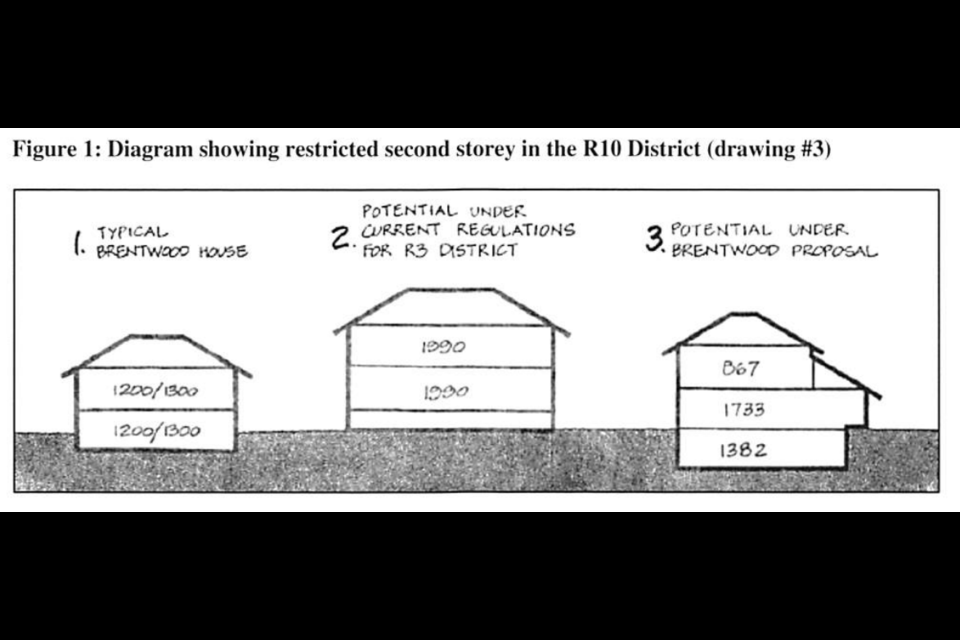Burnaby is speeding up the approval of basement suites in certain areas of the city, but a local housing advocate says the plan runs contrary to the city’s affordability and greenhouse gas targets.
The city proposes allowing basement suites (called “full cellars” in municipal bylaw-speak) in certain zones, as councillors reviewed a potential bylaw change at a special council meeting in January.
The new bylaw would change how much below-grade floor area can be built and how the square footage can be calculated in relation to the size of the home.
The areas affected are certain zones that were left out of bylaw changes allowing basement suites in most of Burnaby’s other residential zones in 2019.
A survey of residents in those areas showed a general level of support for basement suites, but Coun. Alison Gu said at the meeting she was wary of the survey’s results as it was mostly homeowners who were surveyed. She said she would not wish to live in a basement suite.
“I just would caution that we do not create these solutions because they are affordable because they are not desired,” Gu said.
“I think if people had choices, which we obviously need to create, then that affordability wouldn’t be the deciding factor around whether people live in basement suites or not,” she said, adding purpose-built rentals should be the focus throughout the city.
Staff have expedited the process for this bylaw change as a non-profit wants to build a basement suite yet has a funding deadline of March 2023.
Housing advocate opposes bylaw change
Joel Gibbs, a local housing advocate and frequent city hall watcher, said the bylaw change would be a “perverse incentive” to build basement suites. He opposed the proposal at a public hearing on Jan. 31.
“(It’s) actually very harmful that the city is incentivizing these basement suites and it works directly contrary to stated goals around affordability and greenhouse gas emissions,” Gibbs said at the public hearing.
He said the bylaw change effectively excludes below-ground square footage from building regulations regarding size.
“You’re making it like that’s the free space where somebody that’s building a new house can use, but they cannot build that equivalent area above ground. So, if you’re building two storeys above ground already, and you want to build a secondary suite or even just more space, it has to be below grade.”
He noted building basement suites creates a “significant amount” of greenhouse gas emissions due to the excavation process and concrete materials used, and that it costs more to dig out the basement than to add a third storey.
Gibbs said he supported the non-profit’s basement suite, but questioned if council could use an alternative measure to approve that project rather than the bylaw change.
“There has to be a better way,” he said.
The bylaw change will be up at council on Monday, Feb. 6 for its second reading, with the final decision at a later date.





